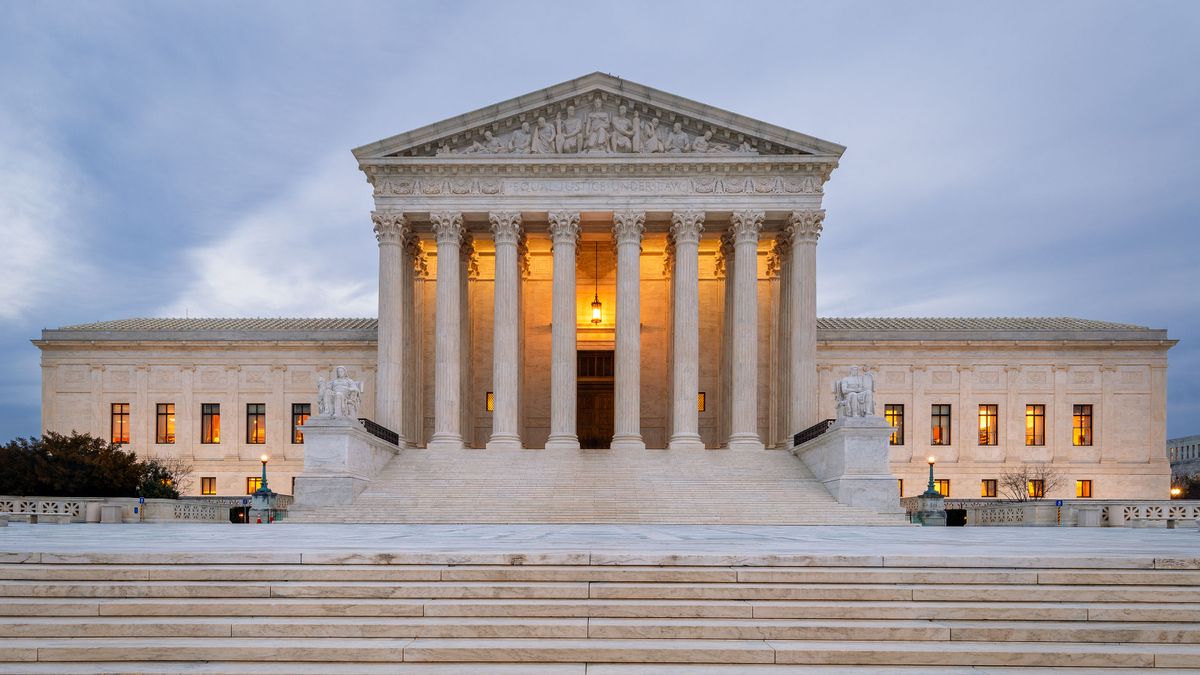happyretiree
Veteran Member

Supreme Court: Yes, the IRS Can Secretly Obtain Your Bank Records
The Supreme Court has sided with the IRS in a case that involves owing the IRS money, bank records, taxpayer privacy, and notice.
 www.kiplinger.com
www.kiplinger.com
The IRS scored a win at the U.S. Supreme Court that could impact your privacy. The court recently released its ruling in Polselli v. IRS, involving whether the agency can access bank records of a taxpayer’s relatives or associates — without notice — to help with tax collection efforts. The Supreme Court’s answer is yes. Under an existing statute, the IRS can secretly probe your bank records and potentially your relatives’ bank records without notice.
“The question presented is whether the exception to the notice requirement applies only where a delinquent taxpayer has a legal interest in accounts or records summoned by the IRS under Section 7602(a). A straightforward reading of the statutory text supplies a ready answer: The notice exception does not contain such a limitation,” Chief Justice John Roberts wrote in the unanimous opinion.
What does this mean for taxpayers in non-legal terms? The IRS can probe financial records to aid in the collection of a taxpayer’s debt without notifying the taxpayer or third parties like the taxpayer’s relatives or associates. This can also happen when the IRS wants to see financial records belonging to someone other than the taxpayer who does not owe the IRS unpaid taxes.
- The IRS can issue a summons to any person when the agency needs information that could “aid in the collection” of federal tax owed. That information can include books, papers, records, or other data. In some cases, it can also involve testimony under oath.
- However, the statute's plain language does not require the IRS to give notice when the agency’s efforts involve collection from a tax assessment or judgment against a taxpayer.
- That can be confusing because, in some circumstances, the IRS is required to give notice of a summons.
Note on IRS Investigation vs. IRS Collection: When the IRS issues a summons to determine whether a person owes taxes, the agency generally must notify the parties named in the summons(es). Those parties can then try to quash the summons, i.e., file a motion to have it voided or set aside.
But this case dealt with whether the IRS must give notice of summonses to third parties when the agency is trying to collect a tax debt. (Determining tax debt, and collecting tax debt, are considered separate IRS activities.)
Attorneys for Polselli’s wife and the firm essentially argued that an exception to this general rule should apply — i.e., that they should have been given notice of the summonses to their banks mainly since they didn’t owe the IRS money. In other words, even if the IRS normally doesn’t have to notify a taxpayer before it probes bank records, an exception should apply when the records belong to relatives and associates, rather than to the taxpayer who owes the IRS money and has no legal interest in their records.
A lower court agreed with the IRS as did Courts of Appeal for the 7th and 10th federal circuits. But the 9th Circuit Court of Appeals found that an exception should apply essentially because Polselli didn’t have a legal interest in his wife’s and attorney’s bank records. However, following the plain language of the statute, the Supreme Court ultimately resolved the split among the circuit courts and ruled in favor of the IRS.
Bottom Line: What to Do If You Owe the IRS
Although the Polselli case involves important questions about privacy and notice, it also raises practical questions about how to pay if you owe the IRS taxes or what to do if you can’t pay the IRS. Given that the agency has significant resources at its disposal (including the power to issue bank summonses) to collect a tax debt that you owe, it’s usually a good idea to pay the IRS taxes you owe on time or as soon as you can.
But what if you can’t pay the IRS? The IRS offers options including agreements to pay your taxes within a certain amount of time. Payment plans and installment agreements can be as short as 11 days or as long or longer than 120 days.

